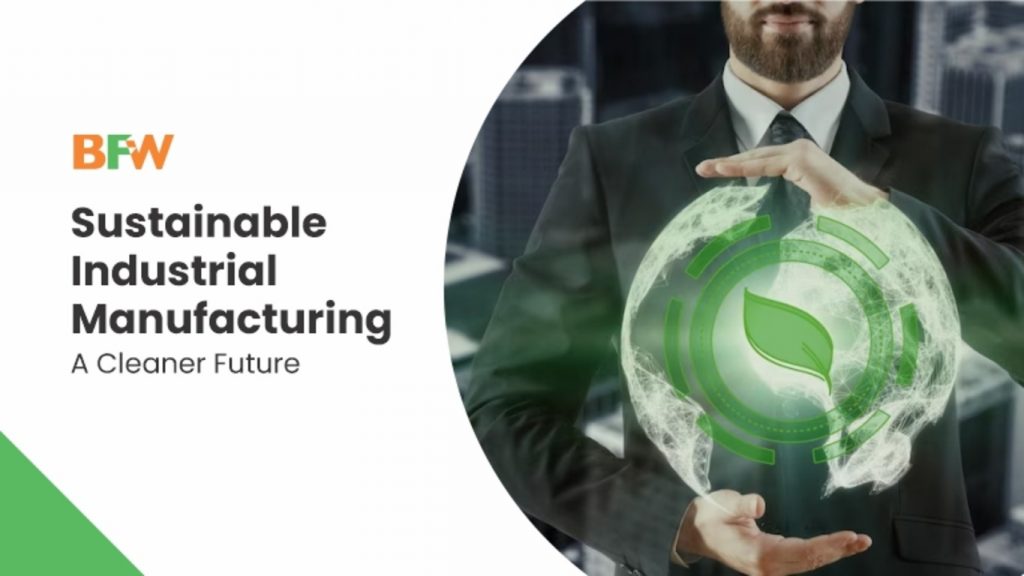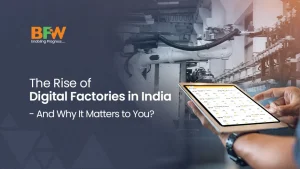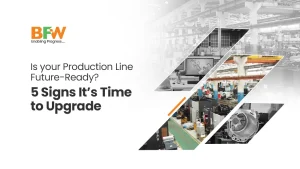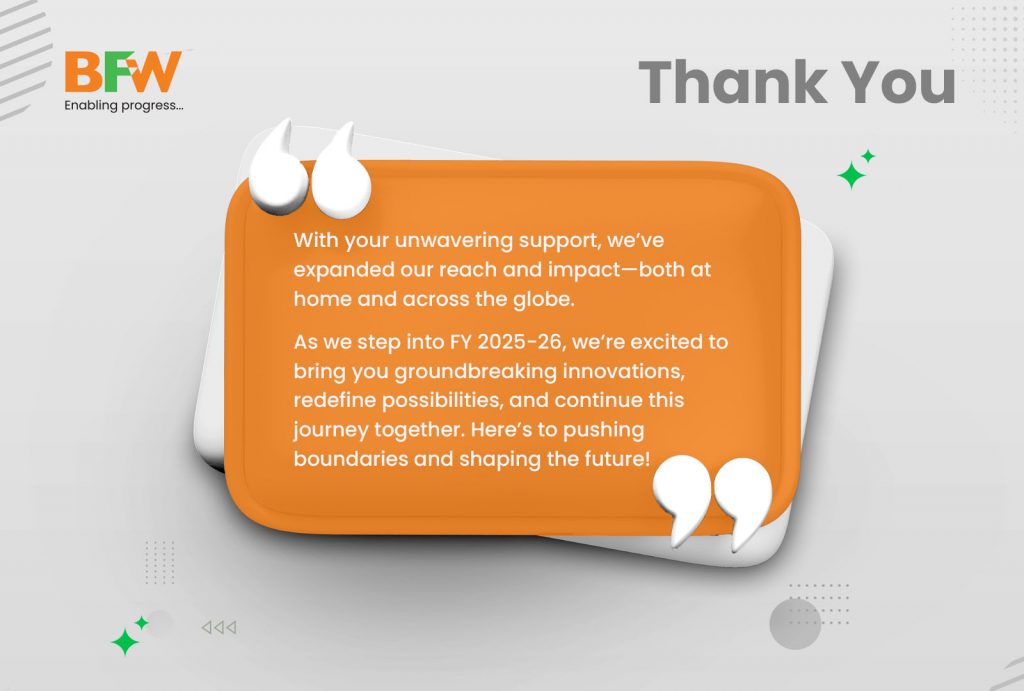As the manufacturing industry gears up for a steep growth, Bharat Fritz Werner (BFW) is committed to playing a vital role in contributing to the global effort to curb climate change.
Today, there is a pressing need to innovate and redefine manufacturing processes that align with the broader mission of fostering a greener future. BFW is excited about the opportunities to lead positive change and create a lasting impact on the environment through its dedicated, sustainable practices.
The “Why and What” of sustainable manufacturing
To stay at the forefront of industrial manufacturing leadership in the future, prioritising the protection of our planet has become a priority.
Sustainability from a manufacturing industry perspective calls for designing and implementing process and infrastructure solutions that support a greener future.
In essence, manufacturing industries need to meet the needs of the present without compromising the ability of future generations to meet their own needs.
As a leading organisation in the industrial manufacturing sector, BFW follows sustainable manufacturing practices through implementation of a robust environmental management system.
Processes are meticulously mapped with clearly defined objectives and goals for carbon and water neutrality and continuous improvements are done to improve performance on these parameters.
Sustainable manufacturing focuses on innovative processes, eco-friendly materials, waste management, recycling, and pollution prevention. It involves efficient industry practices and digital tools, all aimed at minimising environmental impact. Achieving sustainability involves various initiatives, such as:
1. Renewable energy
Industrial manufacturing plants require a lot of energy for production processes. While the industry cannot quickly eliminate energy consumption, it can minimise consumption by shifting from fossil fuels to renewable or green energy, for example, solar energy, green hydrogen and wind power, among other sources. Where possible, adopting renewable energy for various plant operations can significantly enhance manufacturing companies’ sustainability credentials.
Bharat Fritz Werner’s rooftop solar plant generates 15 lakh power units annually, helping the company reduce its carbon emissions by offsetting 1,350 tons of CO2 every year
2. Conservation
Manufacturing organisations also engage in conservation practices that help preserve local ecosystems and natural environments. For instance, some manufacturing companies harvest rainwater, reducing reliance on groundwater.
3. Automation
Smart Automation, AI, and Industrial Internet of Things (IIoT) concepts enable organisations to reduce ecological burden. These concepts help reduce energy consumption, significantly cut costs throughout manufacturing product cycles, and thereby strengthen competitiveness. For example, manufacturing companies now use automation technologies such as robots and cobots (collaborative robots).
4. Reduce, reuse, and recycle
- Reduce: The best way to manage waste is not to produce it; or reduce it to a minimal extent. For example, track energy, water, wood, paper, oil, gas and diesel consumption via digitization and have reduction targets year-on-year.
- Reuse: Repurpose things for a second life, like returnable metal base pallets for CNC machines packing on a returnable basis to save wood.
- Recycle: Recycling is a series of steps that takes a used material and processes, remanufactures, and sells it as a new product.
5. Predictive analytics
Sustainability through predictive analytics can help companies:
1. Reduce resources
2. Anticipate future changes in supply, demand, and price
3. Curb energy consumption
4. Minimise waste through predictive monitoring and predictive maintenance
For instance, BFW’s green machines are designed to switch off unwanted functions when not in use and optimise energy consumption.
Embracing sustainability initiatives
Initiating sustainability efforts is a crucial challenge for companies, requiring a comprehensive mapping of the business, emission measurement, and identification of priority areas for environmental actions.
Embracing sustainable manufacturing is an exciting opportunity that demands a transformation of the entire industrial ecosystem. This shift offers a chance for positive change, innovation, and a move beyond aspirational goals to concrete actions on the factory floor, marking the beginning of a transformative journey toward a more sustainable and promising future.










